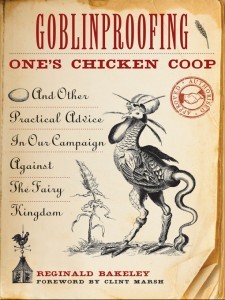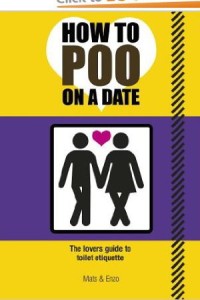Defining original contribution to knowledge
Having submitted my PhD thesis on 28th July, I planned to take a well-earned break. Much as I love writing, the marathon effort involved in completing a 100,000-word thesis was exhausting and I needed to re-charge my batteries. As it turned out, I didn’t actually get that break, for reasons explained below, and I’m now preparing for my viva, scheduled for 27th November.
A good way to begin that prep, I thought, was to read the thesis. My first reaction on picking up this weighty tome was to wonder who had written it. It looks far too good for someone who failed the 11plus back in ’72 and who always had to work doubly hard to make the grade. But then, it’s surprising how good a script can look when printed and bound. It can still, of course, be crap.
No matter (I tell myself). My enthusiasm for the topic was quickly rekindled, boosted by a recent positive exchange with the Senior Commissioning Editor of Palgrave Macmillan about a possible book publication based on the thesis. I had already decided that I wanted to make a statement with my research and a book seems the ideal way to do it. All well and good but now I must press the pause button on the book plans and focus on the prep for November.
If I want to make a statement (in whatever format), I must demonstrate that I have something original to say. It may be useful, therefore, to consider the notion of originality, as in ‘original contribution to knowledge’, the doctoral requisite that strikes fear into the hearts (and minds) of all postgraduate researchers as they lurch or limp towards the final hurdle. It is of course sensible to check what is stipulated in the guidelines for examiners (don’t want to trip up by not understanding the question). The University of East Anglia requires,
‘the discovery of new knowledge, the connection of previously unrelated facts, the development of a new theory or the revision of older views.’ (Guidelines for Examiners)
Dunleavy, who imparts indispensible advice on doing doctoral research, stresses the importance of grounding your originality in your research. He warns against, ‘value-added’ artificiality and observes that coining new concepts or terminology that are not really needed is not being genuinely original. (Dunleavy 2003 p110)
In my own case, I declare that my newly devised ‘Infinity Model’ of academic community provides a cohesive framework for critically appraising academic community, by balancing extrinsic (value) and intrinsic (values) elements, taking us beyond the notion in its most limited form (the form that is dominant today).
In order to avoid an accusation of artificiality, or to be ready with a convincing repost if I do stand accused, I must explain my approach to constructing the research object (the idea and experience of academic community) and to engaging with the literature and the data. Doing so in a way that clearly demonstrates how the act of construction was necessary (it was a problem that needed addressing) and how it has brought about new knowledge. At the very least, I plan to demonstrate that I’ve made a connection between ‘previously unrelated facts’ about the topic.
Dunleavy believes that originality is a cumulative achievement, that new ideas,
‘most often reflect the patient accumulation of layers of small insights and intuitions that only taken together allow an alternative view of a problem to crystallise.’ (Dunleavy 2003 p40)
Whilst many of those layers are set out in a fine-grained analysis, no thesis can truly impart the extent and depth of the incremental cognitive activity that doctoral research entails; how, as a researcher (and a human being), you never totally switch off the cogitation, no matter what you’re doing or how long it takes (nearly seven years, part-time in my case). Perhaps the viva is an opportunity to communicate some of that as a way of demonstrating originality. However, best not to bleat about the protraction. And it wasn’t really that bad. Tony Judt, in his exquisite memoir, ‘The Memory Chalet’, describes how he did much of his doctoral reading whilst working in the kitchens at the Blue Boar Hotel in Cambridge,
‘Once mastered, short-order cooking does more than allow for the life of the mind; it facilitates it.’ (Judt p133)
I can’t imagine the mundane travails of doing doctoral research would be of any interest to the examiners. It comes with the territory.
I mentioned that I didn’t take a break after submitting the thesis. Instead, I went about setting up our new small publishing venture called ‘Gottahavebooks’, including pre-selling our first publication and assisting Trevor with preparing a 124,000 word manuscript for press. The publication is a compilation of first-hand accounts of ‘60s Rolling Stones concerts, told in the words of those who were there, gathered by Richard Houghton. It’s a great read. The stories are original and the book contains previously unpublished images of the band. By bringing the fans accounts together in this format, Richard has helped to shed a new light on the social history of the period, on the Rolling Stones and on the fans themselves.
This in itself is new knowledge but it is different from the sort of knowledge created through doctoral research. For example, Dunleavy tells us to focus on ‘added value’, to keep a critical eye on the extent to which you have transformed or enhanced or differentiated the starting materials of your analysis (Dunleavy 2003 p31).
Whilst the fans’ accounts may be viewed as starting (or primary) materials and whilst they’ve been through a transcription, editorial and publishing process, they’ve not been analysed or interpreted – not in an academic sense. That wasn’t the intention. As I understand it, Richard’s intention was to retain as much as possible the authenticity of the fans’ voices. I too, in my research, wanted authenticity; the title of my thesis is, ‘The academy and community: seeking authentic voices inside higher education’. But the similarity ends there.
The accounts that I had gathered through conversations and focus groups with academics were also transcribed but then subject to a detailed and extensive heuristic analysis. The object of my research (the idea and experience of community) is interpreted and (re)constructed in a way that blends its disparate elements, as revealed through the research itself. The approach to my analysis is briefly explained in my blog post published 28th February 2015 –
https://jebounford.net/the-heuristic-value-of-a-visit-to-the-optician/
Dunleavy says that doing genuinely new theory at PhD level is now very difficult in all of the humanities and social science disciplines,
‘The large empty spaces and opportunities for making major intellectual advances available earlier on have tended to be colonized.’ (Dunleavy 2003 p38) He says,
‘being original in the modern social sciences and humanities is rarely about coming up with an entirely new way of looking at things… it is mostly a more moderate activity… originality involves encountering an established idea or viewpoint or method in one part of your discipline (or in a neighbouring discipline) and then taking that idea for a walk and putting it down somewhere else, applying it in a different context or for a different purpose.’ (Dunleavy 2003 p40)
It is true that much has been written on the topic of academic community. The tone of that literature implies a sense of something that may have been lost but is on the brink of being found, if only we knew where to look. That’s where the contribution of my thesis comes into play, by setting out where to look and by developing a framework that helps us to do so; a framework that leads to a fresh insight and a new model. Yes, I have utilised established constructs, such as the infinity symbol, for the purpose of describing and understanding the relations of the homology that is the idea and experience of academic community. The model is an outcome of the research and it is to be taken forward. It has significant potential as a conceptual framework for exploring, through research and through dialogue, the conditions that create, define, sustain or destroy community inside the academy.
This is the key message for my examiners.
Does it sound convincing?
References:
Dunleavy, P (2003) Authoring a PhD: How to Plan, Draft, Write and Finish a Doctoral Thesis or Dissertation Palgrave Macmillan
Judt, T (2011) The Memory Chalet Vintage Books





